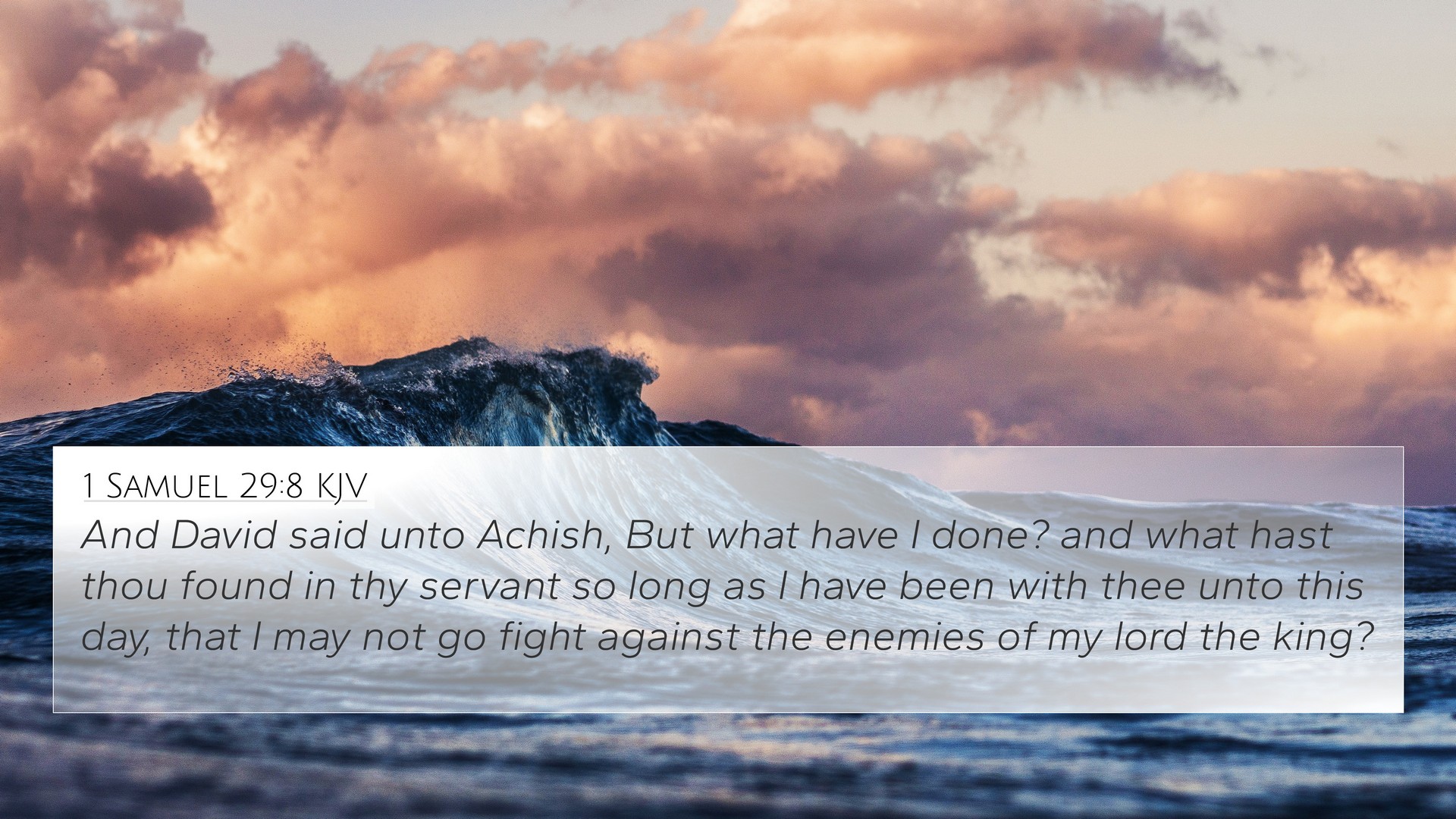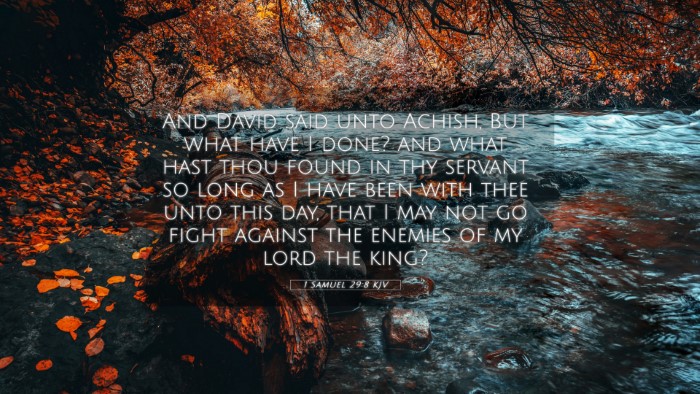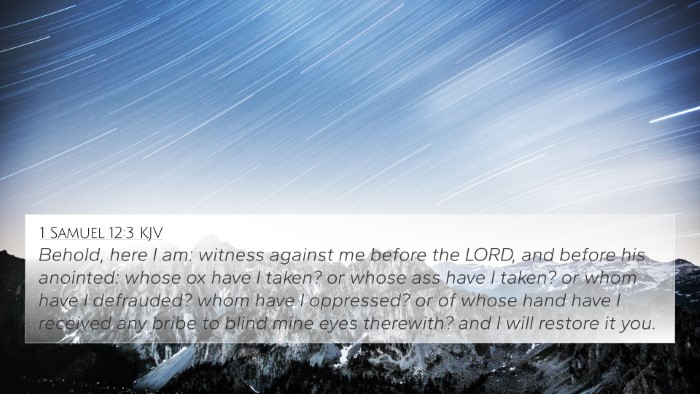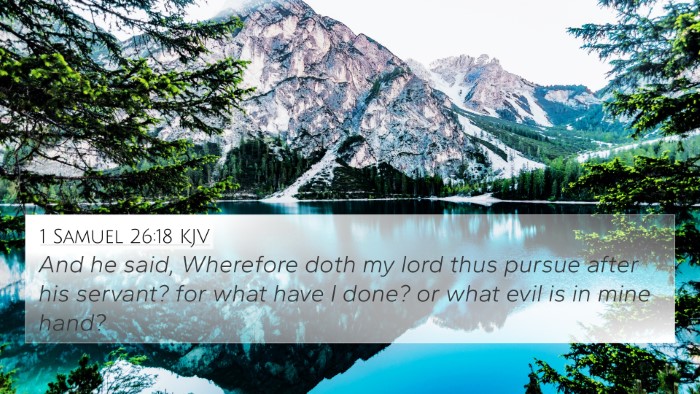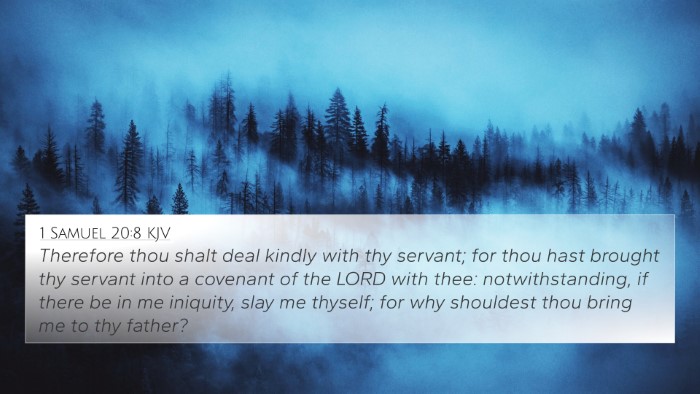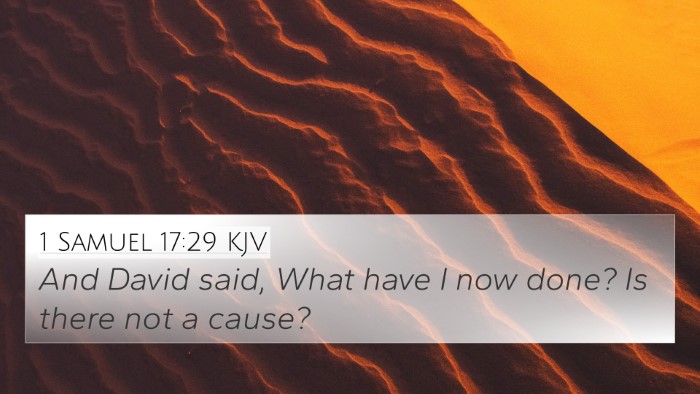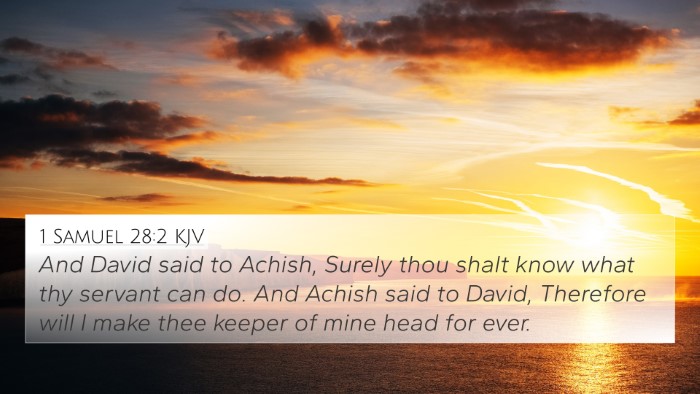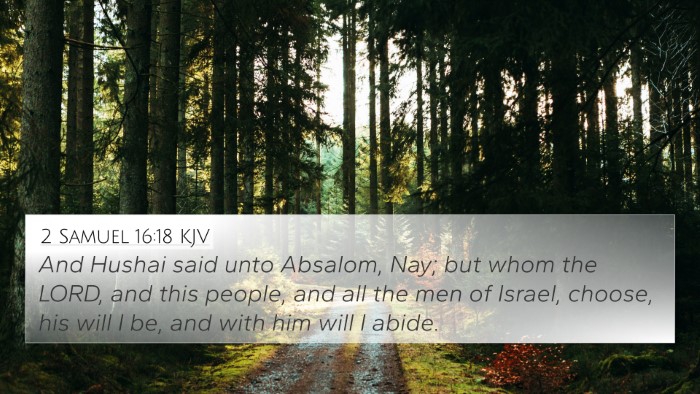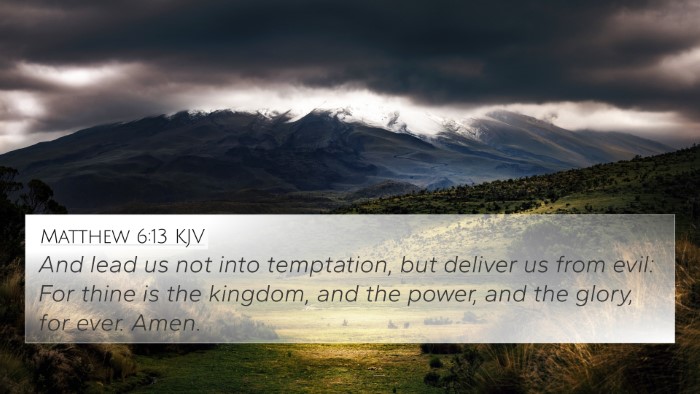Understanding 1 Samuel 29:8
1 Samuel 29:8 states:
"And David said unto Achish, But what have I done? and what hast thou found in thy servant so long as I have been with thee unto this day, that I may not go fight against the enemies of my lord the king?"
Context and Background
This verse occurs during a critical juncture in the life of David while he sought refuge in Philistine territory as a fugitive from King Saul. David had allied himself with the Philistine king Achish, but as the conflict with Israel escalated, he found himself caught in a situation that tested his loyalty and integrity.
Summary of Insights from Public Domain Commentaries
-
Matthew Henry's Commentary:
Henry emphasizes David's desperate circumstances and his effort to maintain peace and his integrity. David questions Achish, indicating his loyalty and providing an opportunity for dialogue that underscores his diplomatic approach despite the impending battle.
-
Albert Barnes' Commentary:
Barnes notes that David's inquiry reflects his desire to avoid conflict directly against his own people, Israel. It highlights David's character, portraying him as a man torn between two worlds but determined to uphold his values.
-
Adam Clarke's Commentary:
Clarke points out how David’s statement can be seen as a reminder of his past service to Achish, suggesting that David is seeking justification for not engaging in battle against his nation. This reflects the complexity of David's situation and his desire to avoid bloodshed among his own kin.
Thematic Analysis
This verse serves several themes related to loyalty, identity, and moral dilemmas in the face of conflict. David’s words reveal a critical examination of personal allegiance and the struggle between individual ethics and external pressures.
Key Themes in the Verse:
- Loyalty: David's confusion about his loyalties raises questions about allegiance to King Saul versus loyalty to Achish.
- Identity: David defines himself in terms of his actions and service, emphasizing character over circumstance.
- Moral Dilemma: The internal conflict is evident as David grapples with the expectation to fight against his own people.
Cross-References Related to 1 Samuel 29:8
To understand the connections between Bible verses relevant to this passage, consider the following:
- 1 Samuel 24:6: David spares Saul’s life, reinforcing his commitment to not harm the Lord's anointed.
- 1 Samuel 26:9: Again, David refuses to kill Saul, showcasing his integrity and faith.
- 1 Samuel 30:6: When David faces adversity, his leadership qualities are apparent as he rallies his followers.
- 2 Samuel 15:17: Reflects on David's complex political relationships as he flees from Absalom.
- Psalms 34:1-3: David often sings praises to God amidst turmoil, reflecting his reliance on divine guidance.
- Matthew 5:9: Pondering on the theme of peacemakers, which applies to David's efforts to avoid conflict.
- Romans 12:18: Encouragement towards living peaceably with all reflects David’s intentions.
Exegetical Considerations
Examining this text offers insights into Divine Providence, as God works through David to bring about His plans, even as David navigates complex human relationships. Achish's role as a Philistine king juxtaposes God's covenant relationship with Israel and underscores the profound effects of allegiance.
Practical Applications
The dilemmas David faces resonate with modern readers facing choices in loyalty, integrity, and faith. His actions invite reflection on how one balances personal ethics with external expectations and pressures.
Conclusion
1 Samuel 29:8 serves not only as a historical reflection of David's life but also as a rich source of theological and moral import. The connections to other scriptural passages deepen the understanding of this verse, providing valuable insights for personal growth and governance.
